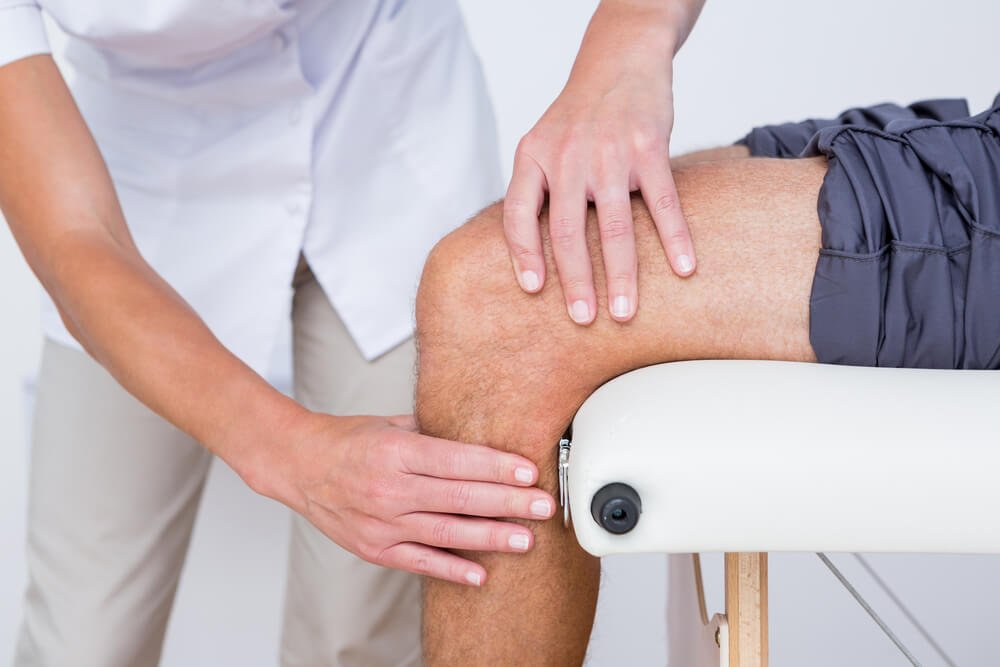You may have heard a parent, or a grandparent complain about achy, stiff joints. Most of us would chop this up to normal wear and tear from aging, but what if there was something we could do about it? Turns out, collagen may be the answer.
How Collagen Impacts Joints
Achy and stiff joints as we age are often due to reduced collagen production. Collagen is one of the most abundant proteins in the human body and is an essential component of our tendons, ligaments, skin, muscle, and more.
As we get older, our production of collagen slows down causing stiff muscles and loss of skin and joint elasticity. Collagen is crucial in maintaining the structure of the cartilage in our joints. When this cartilage is healthy, it allows our joints to move smoothly, when it is lacking collagen it can become stiff and inflexible leading to pain and discomfort [1].
When we produce smaller amounts of collagen, we are at an increased risk of developing a degenerative joint disease, such as osteoarthritis. Additionally, you can consider incorporating collagen supplements may stimulate the production of new cartilage cells, which can aid in the regeneration of damaged or worn-out cartilage in the joints. Some studies have found supplemental collagen to help reduce symptoms of osteoarthritis and improve joint pain. Most studies found positive results with the supplementation of 10 grams of collagen daily. [2, 3, 4].
What Happens to Collagen Production as We Age

As we get older, collagen production begins to slow down. It’s believed that collagen levels peak between the ages of 25 and 34 years old and then gradually decrease by 25% over the next 40 years.
This is considered a natural part of aging; however, it can cause discomfort and challenges in later life for many. Collagen production can also be decreased with increased sun exposure, which can affect the appearance and elasticity of our skin and result in early signs of aging [5, 6].
How Low Collagen Can Increase the Risk of Joint Health Issues

Low collagen levels can cause the structure of our cells to weaken, resulting in loss of elasticity in our ligaments and stiff joints. With decreased production of collagen, the structural integrity of our cartilage is affected.
Our cartilage and tendons become looser, increasing your risk of injury and various degenerative joint diseases. Supplemental collagen has been found to help reduce joint deterioration and help with symptoms of joint diseases, such as osteoarthritis [3].
How to Naturally Increase Collagen Production
It is believed that you can naturally increase collagen production in the body by consuming collagen-rich food sources.
These include foods that contain gelatin, such as bone broth. Other sources include the skin of chicken, fish, pork, and beef. Consuming animal products, such as meat, fish, poultry, eggs, and dairy products is also believed to help due to the high amino acid content [7, 8].
To increase collagen levels, it’s best to consume good sources of vitamin C as well. You can find vitamin C in foods such as broccoli, bell peppers, or citrus fruits. This helps with collagen synthesis.
Further research is still needed to determine if eating collagen-rich foods has the same effect on collagen production in the body as taking collagen supplements.
Despite the lack of research, choosing collagen-rich foods as a natural option to increase collagen cannot hurt. For those in the aging population, it will increase overall protein intake, an important nutrient to maintain muscle mass as we age [9].
Supplementing with Collagen

Most studies show a positive impact of supplemental collagen on joint health. Most research agrees that 10 grams per day of collagen can be impactful. It’s important to discuss with your doctor or healthcare provider before incorporating a supplement into your routine. Be sure to be mindful of the quality of collagen you are choosing.
Always choose your supplements from reputable manufacturers. Look for third-party testing and avoid products that contain artificial additives and high amounts of added sugars.
Look instead for products that contain minimal ingredients, such as collagen peptides from Naked Nutrition. This product is made with only one ingredient, bovine hide collagen peptides sourced from pasture-raised cows in Europe.
Although studies have found benefits from supplemental collagen on joint health, those benefits cease once you stop supplementing. You will only reap the benefits if you consistently take collagen supplements daily without breaks.
Bottom Line
As we age, we can expect a gradual loss of collagen which may impact our joints. To avoid joint pain and stiffness, along with degenerative joint disease from low collagen levels, supplemental collagen may help.
Most studies suggest 10 grams of collagen per day however, it must be taken consistently without breaks to experience any benefits. Collagen-rich foods may also be helpful as a natural way to boost collagen production however, research does not support this as providing the same benefits as supplemental collagen at this time and more studies are still needed.
















